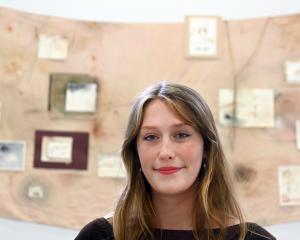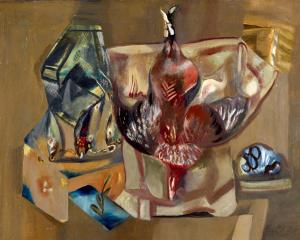A play for our generation is how director Stephanie McKellar-Smith describes the Fortune Theatre's upcoming production.
In the theatre's ''True Grit'' series, it is beautiful, funny in parts, but thought-provoking and even disturbing, she says.
''I was driving to work this morning in my four-wheel-drive and thinking 'Oh my God my carbon footprint is enormous. What am I going to do about my carbon footprint'.''
Written by British playwright Duncan Macmillan and premiered in New York, Lungs has American and British versions, but McKellar-Smith and her cast of two, Todd Emerson and Claire Dougan, are setting it firmly in New Zealand.
''I didn't want the audience to feel this is about someone else over there so we feel we can watch this academically and don't have to own the ideas that these two are debating. I want us to see ourselves on stage,'' she says.
The two characters - they don't have names - agonise over whether to have a child and the impact on the planet of having one.
''When I had my three girls, I didn't think once about what the planet was going to be like for them when they are my age. It never crossed my mind, but now my girls are grown up I hope one day I'll have grandchildren. I really want that but my God, what is the planet going to be like for them?'' she said.
''Are we the people who should be having children because we are thinking and aware and recycling, or because of that should we be the people who don't have children. Should we be adopting children who are already out there?''
There's a new acronym, Gink (green inclinations no kids), people who make a conscious decision not to have children, she said.
''While we can say it's all those people in Asia and Africa who are breeding and breeding, those people don't have recourse to contraception and healthcare and so on, and when they do have a child, the carbon footprint is still really tiny, whereas if you give birth to a child in the West the carbon footprint is enormous immediately because of all the gadgets and the massive infrastructure around that.
''For me, that's the beauty of the play; everything's grey. We want to think in black and white but everything's grey, and we might think it's the right thing to do not to have a child but we are also driven by that deep primitive need to take care of our own feelings of mortality but thinking that we do go on.''
But despite the importance of ideas about climate change in the play, it is really about two people and their relationship over a long period of time, she emphasises.
''They have one child. It's pretty intense. As the play progresses time speeds up, so there are conversations where they are debating what to do in real time at the beginning of the play, but by the end you are leaping decades in a page of text. The child has grown up and it's most telling because they talk about his anger, their children's anger at our generation because of the way we are living now. It's incredibly hot, it's hard to breathe, there's ash everywhere. This is in the future when their child has grown up.''
In the play, the female is doing a PhD around these kinds of issues, and when they separate at one stage the man says he's more stupid without her because she used to show him what books to read.
However, he's happier because he feels released from the burden of knowing, McKellar-Smith says.
''It's that whole head-in-the-sand. We go 'it's too big. I can't do anything about it. I'll recycle my plastic bags. I'll do what I can in my little corner but I can't think about the sheer scale of it'.''
The play is stripped back - the two characters don't have names, there is no set, no lighting changes to help with mood, no props, no sound cues or costume changes.
It's a real actors' play and calls on all their craft and skills, she says.
''I think it's really satisfying for audiences: it will jump and suddenly people will be aware it's then next day or next week or a couple of months or 10 years down the line. I think audiences will be able to make those connections for themselves. That's the beauty of live theatre. It's such a wonderful communion between audience and actors.
''At the end of the day, we want a great story and this is a great story, and we want to recognise ourselves on stage and be provoked and challenged. Hopefully, Lungs will make us open our eyes, even if it's just for five minutes, and make us think: do I worry about if I have any grandchildren and what is it going to be like in 50 years?'' she says.
See it
Lungs, by Duncan Macmillan, directed by Stephanie McKellar-Smith and featuring Todd Emerson and Claire Dougan, opens at the Fortune Theatre on Saturday.














